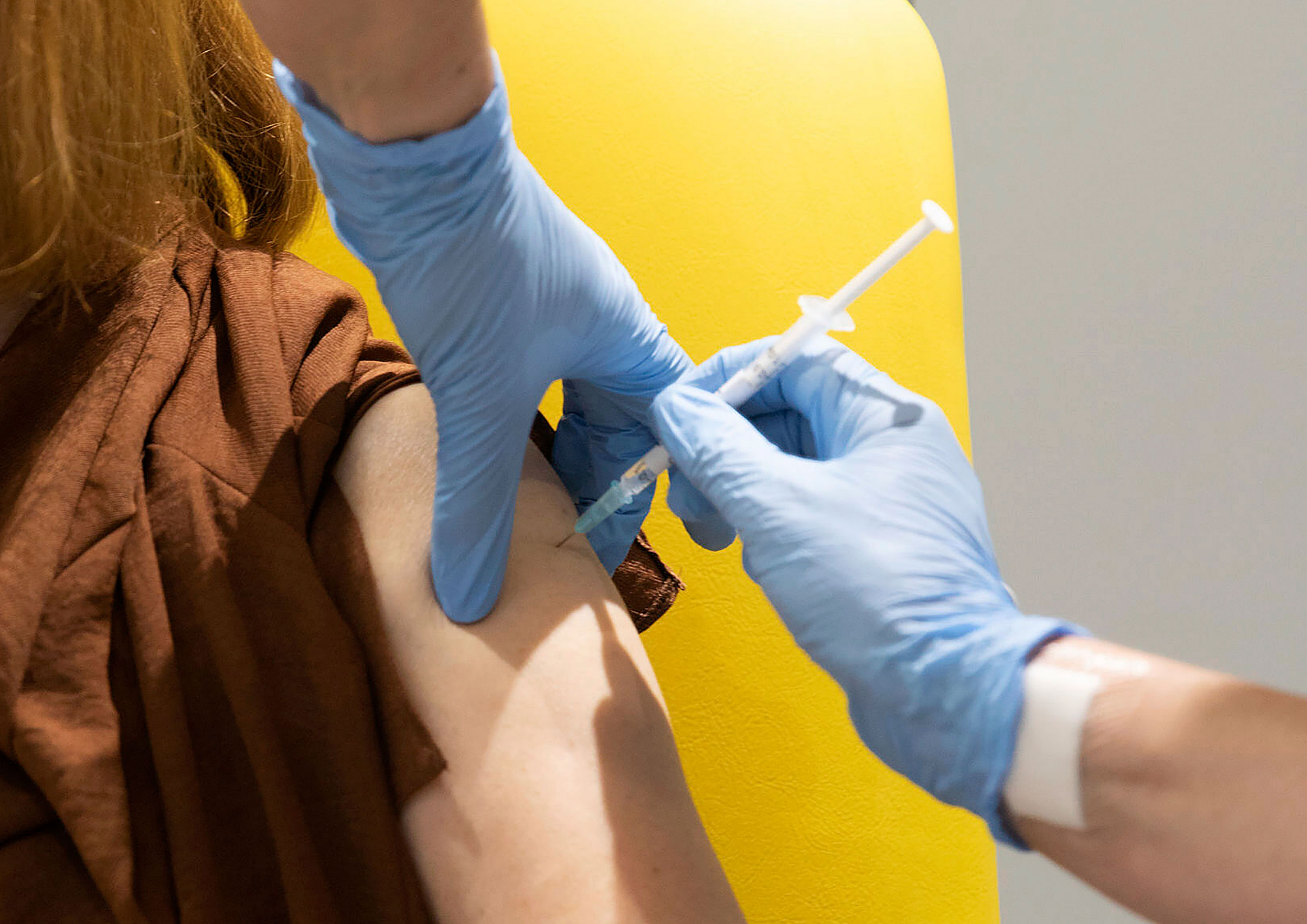
The British government has announced that it will follow a new immunisation strategy for the newly-approved Oxford-AstraZeneca vaccine, which will prioritize giving the first of two vaccine doses to as many people as possible, before administering the second dose 12 weeks later.
According to UK Health Secretary Matt Hancock, scientists and regulators have found that the first dose of the Oxford-AstraZeneca vaccine offers “very effective protection” from coronavirus, allowing for people to be protected for a longer period of time before receiving a second dose.
Speaking on Sky News on Wednesday, Hancock said that the regulator’s announcement was important as it “means that we can get the first dose into more people more quickly and they can get the protection that the first dose gives you.”
In contrast, the prescribed two doses of the coronavirus vaccine developed by Pfizer and BioNTech – which comes with greater logistical demands – must be administered three weeks apart.
UK government scientific advisor Professor Calum Semple welcomed the new “sophisticated approach,” telling Sky News on Wednesday that a “one-dose approach to start with will protect a great many people.”
“The first dose actually gives adequate protection in order to have, as a public health policy, a one-dose start-up regime, and then follow it 12 weeks later with a second dose, because we know that anyone that has had one single dose of this [vaccine] has not suffered severe disease and hasn’t had to go into hospital,” Semple said.
“What the JCVI (UK Joint Committee on Vaccination and Immunisation) are saying is that one dose is good enough to get started, so it’s better to maximise the first dose across the population and catch up 12 weeks later with the second dose,” he added.
According to Semple, evidence from vaccine trials has shown that a single dose not only prevented people from getting severe disease, but also prompted a “very good immune response” in frail and elderly people.
“That’s quite a significant change, and it’s quite important. That’s what is game-changing about this vaccine,” Semple said.
Andrew Pollard, director of the Oxford Vaccine Group, told BBC Radio 4 on Wednesday that the second dose “will be really important” because it “will be critical for the durability of the immune response” to help prevent further waves of the disease.
Pollard also confirmed that, at the moment, there is “no evidence” that the new vaccine won’t be effective against the new variant of coronavirus detected in in the UK.
“We can’t be complacent with this or other variants, so now we have to monitor the virus that is around and make sure the vaccines are still effective against it,” Pollard said.
“If in the future it is necessary to tweak the vaccines, that’s entirely possible to do,” he added.
Millions of people are expected to be vaccinated by the end of the first quarter of 2021, the CEO of AstraZeneca said Wednesday.
“We already have millions of doses we’ll be filling over the next period of time,” Pascal Soriot told BBC Radio 4, adding that the British-Swedish company has capacity to produce and deliver two million doses of the new vaccine per week, with the first doses expected to be distributed across the UK over the next few days.
“We’re lining deliveries with the government so we can progressively ramp up the vaccination program….in January we’ll possibly already be injecting several million people and, in the second quarter, we’ll be in the tens of millions of people,” he added.
You may also like
-
UK coronavirus variant has been reported in 86 countries, WHO says
-
NASA technology can help save whale sharks says Australian marine biologist and ECOCEAN founder, Brad Norman
-
California Twentynine Palms: Explosives are missing from the nation’s largest Marine Corps base and an investigation is underway
-
Trump unhappy with his impeachment attorney’s performance, sources say
-
Lunar New Year 2021: Ushering in the Year of the Ox

